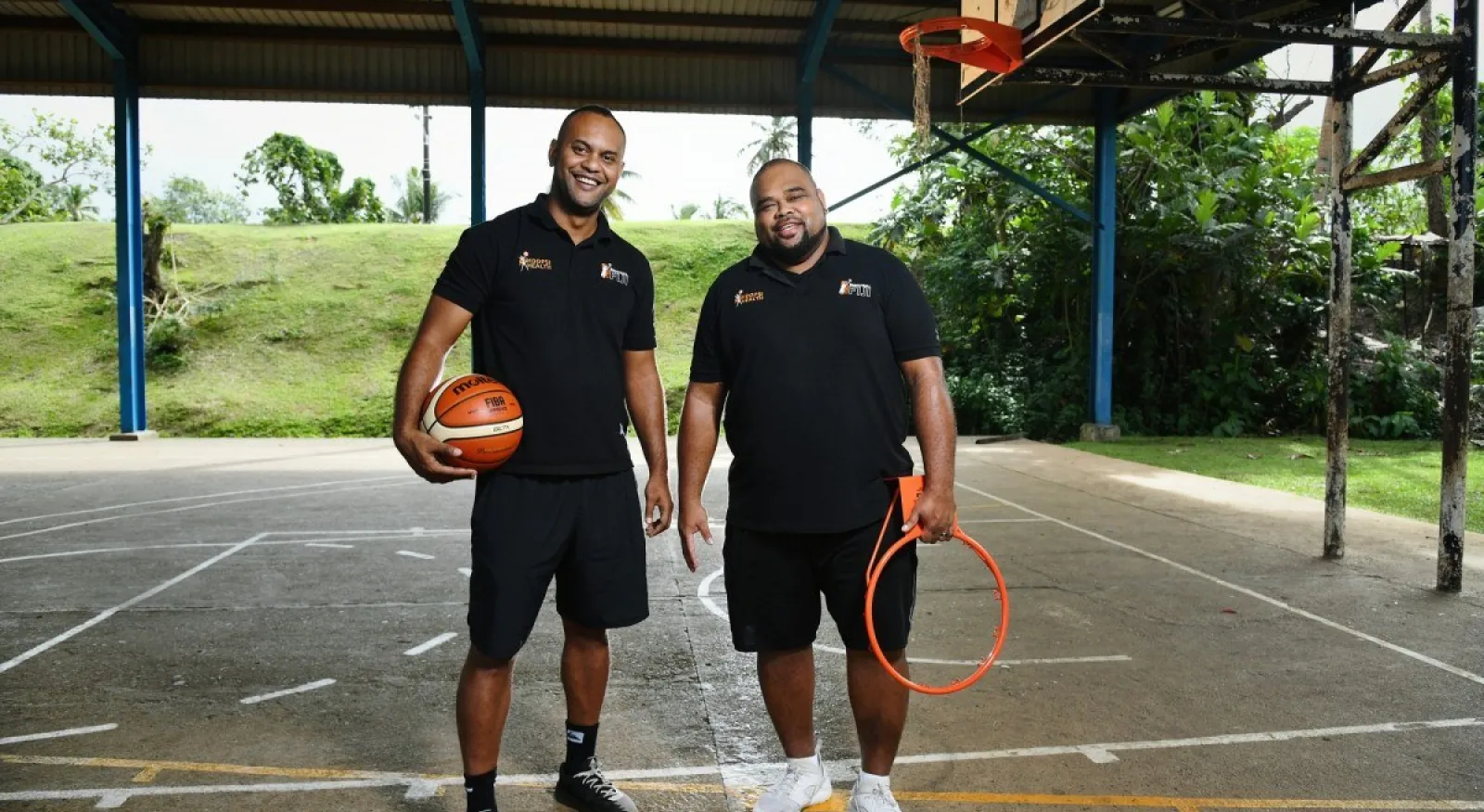More than just basketball
How Australian volunteer Ben returned to his community in Fiji to give back through his love of sport.

In Suva’s Raiwaqa district, it’s clear when the school day has ended: uniformed children rapidly fill the inner-city suburb’s outdoor basketball court, ready to play.
Teams are quickly formed and multiple games of basketball, rugby and volleyball spread across the concrete courts, spilling onto the surrounding grass. Yells and laughter just about drown out the nearby traffic.
These courts were home to Apenisa Tuimabualau (who goes by Ben), growing up in Suva.
As an Australian volunteer with Basketball Fiji, Ben returned to these courts, to train kids in his beloved basketball and promote the rewards the sport can bring.
Originally from Bau, a small island off the coast of Fiji’s main island of Viti Levu, Ben lived on the Gold Coast for 10 years before volunteering.
He grew up playing basketball and rugby, and once represented the Fijian national basketball team at the South Pacific Games when he was 17.
In Australia, he continued to support basketball in Fiji – arranging for second-hand basketballs, uniforms, shoes, nets and rings from the Brisbane Basketball Association, to be sent to Fiji.
When he saw the opportunity to help promote the sport he loves in his home-country, Ben naturally jumped at the chance.
‘It was so good to return to Fiji and give back to my community,’ says Ben.
A large part of Ben’s 18-month role as the Events and Fundraising Coordinator was arranging fundraising activities to support the Fiji Basketball Federation, which is entirely volunteer-run, and run events to encourage participation in basketball.
Ben helped organise a 10-week basketball program for kids aged 8-13 called ‘Bula Hoops’. During the program, together with his Basketball Fiji colleagues Kenneth Taliu (Development Officer) and Laisiasa Puamau (Chief Operating Officer), Ben taught the fundamentals of basketball, building the children’s confidence and skills.
The program has been a huge success, and has more than tripled the number of kids in Suva who are playing basketball officially, from 40 in 2018, to 140 in 2019.
‘There were so many kids that in the end we set up an actual basketball league for them, so they can play every weekend,’ says Ben.
There are currently four teams in the league, but as the sport gains popularity, Basketball Fiji is looking to double that number to eight.
Laisiasa says Basketball Fiji’s goal is to make the game widely available across Fiji, so anyone interested in sport, regardless of age, gender, ethnicity and disability, feels encouraged to play.
'Our motto is “it’s more than just basketball", and we take that sentiment seriously in the programs we run.'
According to Ben, basketball can help address health problems in Fiji: ‘we have a growing health problem here, with an increase in non-communicable diseases, such as diabetes.
‘So, if we can get these kids to focus on sport, they’ll be able to keep healthy and active and influence their health outcomes as adults.’
As well as promoting a healthy lifestyle, Ben says basketball also teaches kids about teamwork, sportsmanship and leads to lifelong friendships.
‘These programs allow the kids to have something to do after school,’ says Ben. ‘There aren’t many kids’ programs in Suva, or in Fiji as a whole. It melts my heart to see the kids happy and having a good time playing the sport we all love.'
Laisiasa says Ben brought a wealth of experience in basketball, new networks and more of an international focus to Basketball Fiji.
‘Ben brought to the team a broader view on matters relating to both life and work,’ says Laisiasa.
‘He helped us build Basketball Fiji to be more sustainable, and lay the groundwork for us to eventually transition from a not-for-profit to a more business-oriented organisation.'
Ben says the main thing he learnt from his colleagues in Fiji is resilience: ‘even though there isn’t much in Fiji in terms of resources to do with basketball, the team still makes the effort every day to make sure the kids get an opportunity to play basketball.’
‘In western culture money is often available to throw at problems; in Fiji that is not the case - our wealth is in our relationships and cultural connections.
There is something truly empowering about thinking outside the box and creating something dynamic from the community we live in.’